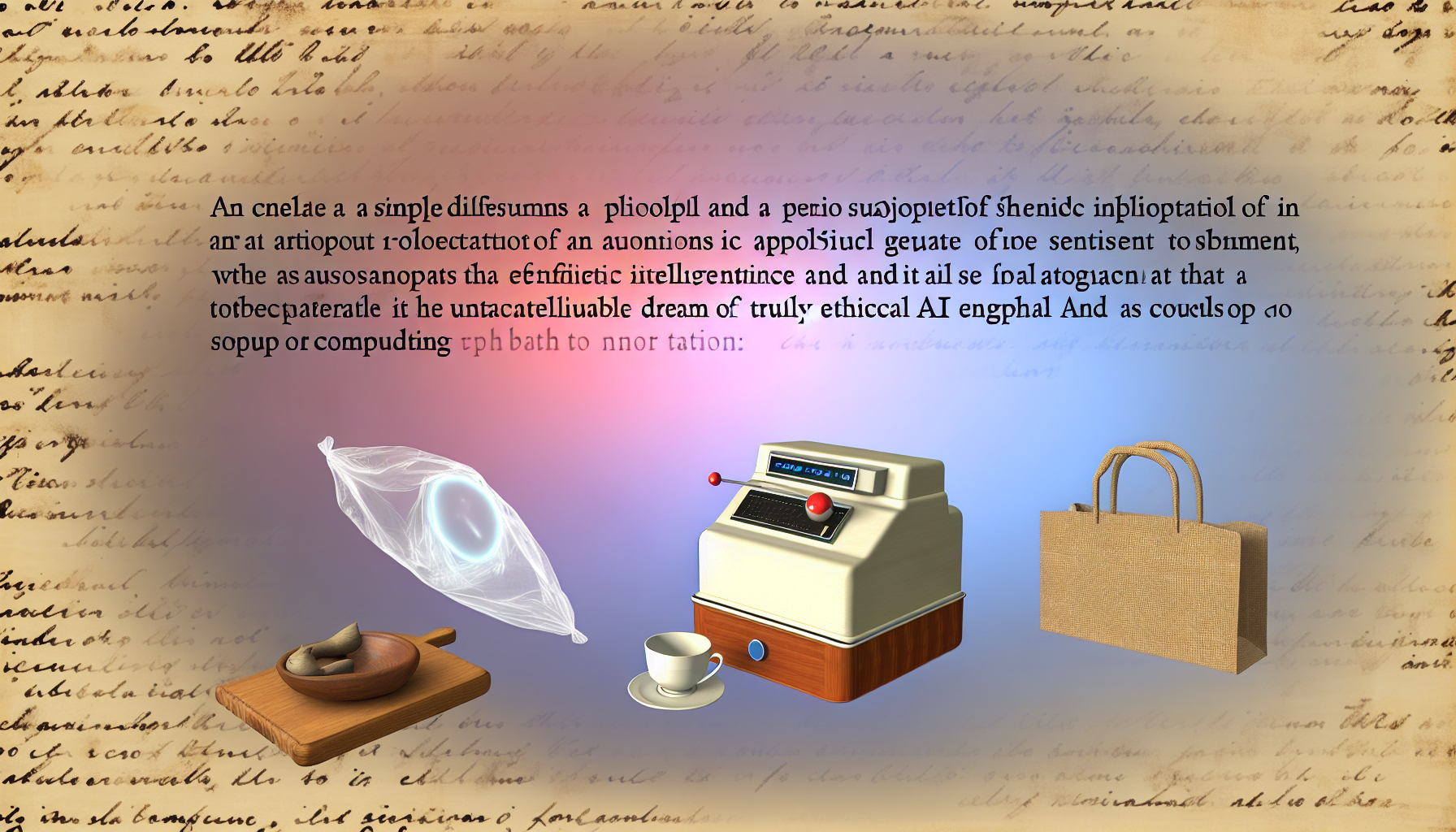In a world where autonomous checkout registers tell us we need assistance buying bread, we find ourselves considering the grander philosophical challenges of Artificial Intelligence (AI). Chiefly among these challenges is an intriguing question: Can we create AI that is truly ethical? Or is it an impossible dream, forever floating just out of reach like a recycled plastic bag in a gentle breeze?
Understanding Human Bias
Before tackling AI ethics, we’ve got to look into our own mirrors—preferably the ones with the least distorting filters. Human bias is as inherent to us as our need for caffeine on dreary Mondays. It’s affected by culture, experience, family dinners, and occasionally, the effectiveness of our morning espresso. These biases, sometimes subtle, sometimes glaring, influence our decisions, shape our societies, and, if left unchecked, lead to a phenomenon known as “foot-in-mouth syndrome.”
The trouble with AI is that it learns from us—yes, we’re the esteemed professors at the University of Data. If bias is present in the data we feed our ever-hungry AI, it too will develop this profound capacity to make skewed decisions. Think of it as passing along our bad habits without the joy of ice cream.
The Quest for Ethical AI
Imagine, if you will, an AI that makes decisions free from human prejudice, an entity that would be the ideal judge of integrity and morality. It might even solve the age-old dilemma of who left the cap off the toothpaste. A truly ethical AI could transform society by promoting fairness, reducing inequality, and perhaps delivering on that ever-elusive promise of world peace.
Yet, achieving ethical AI is akin to trying to enjoy low-fat ice cream. It’s possible, but often disappointing. The challenge is that there’s no universal agreement on what “ethical” truly means. It’s a bit like asking ten people how to make the perfect cup of tea—you’re bound to end up with eleven opinions.
The Technical Hurdles
The technical side of creating an ethical AI resembles a puzzle with too many corner pieces. The primary issue lies in programming ethics—how do you translate a concept as complex and amorphous as ethics into the binary language of computers? It’s like trying to explain the nuances of Shakespeare to a toddler—they might repeat the words, but the deeper understanding would be hilariously lacking.
AI systems need clear, unambiguous data to function effectively. Yet, the world of ethics is full of gray areas, context, and cultural variations. When faced with ethical decisions, humans rely on empathy, historical precedent, and occasionally, a coin toss. Translating this into rigid algorithms is anything but straightforward.
Bias in the Digital World
Even if we could agree on a set of ethical guidelines, eliminating bias from AI datasets is a task of Sisyphean proportions. It’s less about finding a needle in a haystack and more about removing all the hay to get a clean needle. Bias can inadvertently seep into AI files through various channels—from biased sample data, skewed programming, or unforeseen interactions in complex systems. It’s like trying to juggle while wearing mittens—a feat that’s possible, yet awkward and prone to mishaps.
Furthermore, AI systems are often treated as black boxes, even to their creators. We may understand the inputs and anticipate the outputs, but the internal journey remains a mystery best left unraveled.
Cruising Towards Ethical Possibilities
While the road to creating an ethical AI seems daunting, the journey itself is filled with invaluable insights. Developing AI can act as a mirror reflecting our own biases and ethical shortcomings. If we can identify and mitigate these biases within ourselves, our attempts to encode ethical principles into AI will, at the very least, guide us toward self-improvement.
Imagine an AI co-pilot who provides suggestions based on ethical reasoning, much like a friendly neighborhood philosopher casually reminding us to hug our loved ones or avoid that extra slice of pie. AI can analyze vast landscapes of information, predict outcomes, and present options we hadn’t considered—our task is to ensure it does so free from prejudice.
The Hope for a Brighter Future
So, is the dream of achieving ethical AI impossible? Perhaps it’s premature to label it a “pipe dream.” The quest is ongoing, akin to learning to dance—something improving with practice (and a few stubbed toes). While we may never completely eradicate bias from AI, continuous efforts in this direction can usher in technology that amplifies the best of human nature.
AI ethics isn’t just about the machines. It’s a study of ourselves and a call to examine and refine our own moral compass. With thoughtful vigilance, collaboration, and a healthy sprinkle of humor, we might one day develop AI systems that not only emulate ethical decision-making but inspire us to become more conscious ethical beings. And that, certainly, is a dream worth pursuing.

Leave a Reply